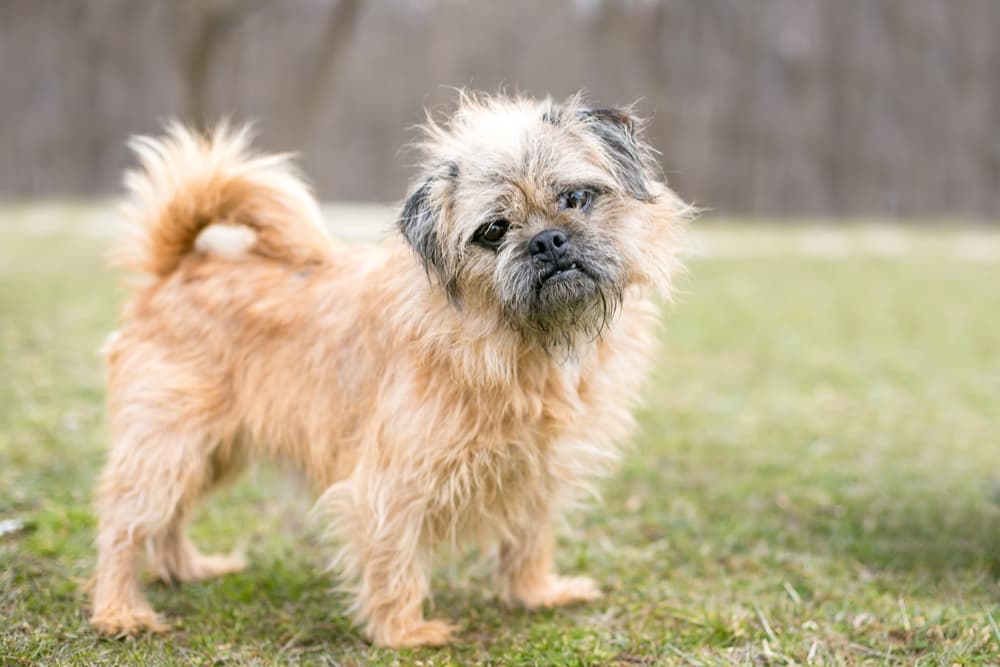Dog Hyperventilating: Why it Happens and How to Help

Few symptoms are scarier for pet parents than a dog that can’t stop panting, and the question that’s likely top of mind is whether you’re dealing with an emergency.
If your dog has been hyperventilating due to heat exposure and hasn’t stopped panting despite attempts to cool her off, seek veterinary attention immediately. She could be suffering from heat stroke which can be life-threatening. If she’s panting uncontrollably for no apparent reason, call your veterinarian to figure out next steps.
Otherwise? Read on to learn why dogs hyperventilate, what to do when it happens, and how to help prevent it.
Can Dogs Hyperventilate?

“Dogs do not tend to hyperventilate the way humans do,” says Dr. Leni Kaplan, a veterinarian at the Cornell University College of Veterinary Medicine. Most documented cases of hyperventilation in dogs occur when they’re under anesthesia due to pain or complications.
That said, dogs can heavily pant or breathe rapidly—which we often casually refer to as hyperventilation.
“Sometimes, it can sound raspy or congested depending on the cause, but typically it just looks like the dog is taking quick, short breaths,” says Dr. Laura Robinson, lead veterinary advisor to Pawp.
Why Is My Dog Hyperventilating?

It’s normal for a pup to pant after vigorous exercise like a long game of fetch, a walk outside on a hot day, or stressful situations like a visit to the veterinarian’s office, night full of fireworks, or long car ride.
A dog with separation anxiety may breathe heavily while you’re gone.
And certain dog breeds with flat faces like Boston Terriers, Bulldogs, and Pugs are prone to breathing problems like frequent panting.
But “dogs don’t usually hyperventilate except for normal panting unless there is a medical problem, often a serious medical problem,” says Dr. Lucas White, a veterinarian at Sunset Veterinary Clinic in Edmond, Oklahoma.
This could happen for a slew of different reasons such as:
- Heat stroke
- Pain
- Heart issues such as heart murmur or congestive heart failure
- Respiratory problems such as distemper, pneumonia, or lung cancer
- Exposure to toxins like chocolate
- Neurological issues like seizures
- Cushing’s disease
- Side effect of medication such as prednisone
Dog Hyperventilating Signs

Depending on the cause, a hyperventilating dog may also show additional symptoms of concern.
These may include:
- Pacing or reluctance to settle down
- Lethargy or unresponsiveness
- Shaking, tremors, or seizures
- Drooling
- Vocalizations like crying or howling
- Limping
- Licking or biting a certain area
- Coughing
- Purple or pale gums
- Excessive thirst and urination
How to Stop a Dog from Hyperventilating

The key to stopping hyperventilation is identifying and treating the source of the problem. If your dog seems to be breathing quickly due to a clear cause—like the sight of grooming tools—her breathing should calm down within 15 to 20 minutes once the trigger has been removed.
If your dog hasn’t stopped panting or is hyperventilating in her sleep or for no readily apparent reason, seek veterinary attention ASAP.
Dog Hyperventilating: Prevention

Because hyperventilation in dogs can be caused by so many conditions, it’s not always avoidable. However, there are some steps you can take to protect your dog from common problems at the root of heavy breathing.
“Preventing situations that contribute to dogs’ being hyperstimulated, anxious, or overheating is the best step pet parents can take to help their dogs,” says Dr. Kaplan.
For example, if seeing other dogs on a leash sets your pup off, consult with a trainer to ease her into a healthier reaction. Positive reinforcement (read: plenty of dog treats) can help dogs learn to build confidence and feel calm in situations that may otherwise make them super anxious.
To prevent overheating, limit outdoor activities on hot and humid days, stick to shady and breezy areas as much as possible, always keep a fresh supply of water available, and never leave your dog inside a car alone—not even for a short period of time.
When rapid breathing is related to anxiety, a multi-modal approach including regular exercise and play, training, supplements, and possibly prescription medications is often necessary, says Dr. Kaplan. In this case, it’s best to schedule a consultation with your veterinarian to determine the best plan of action for your pet.









